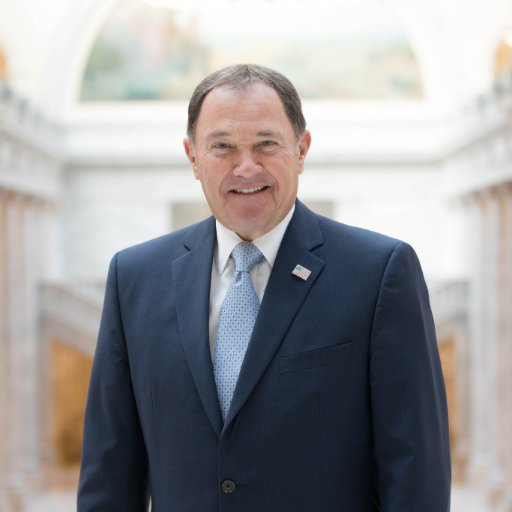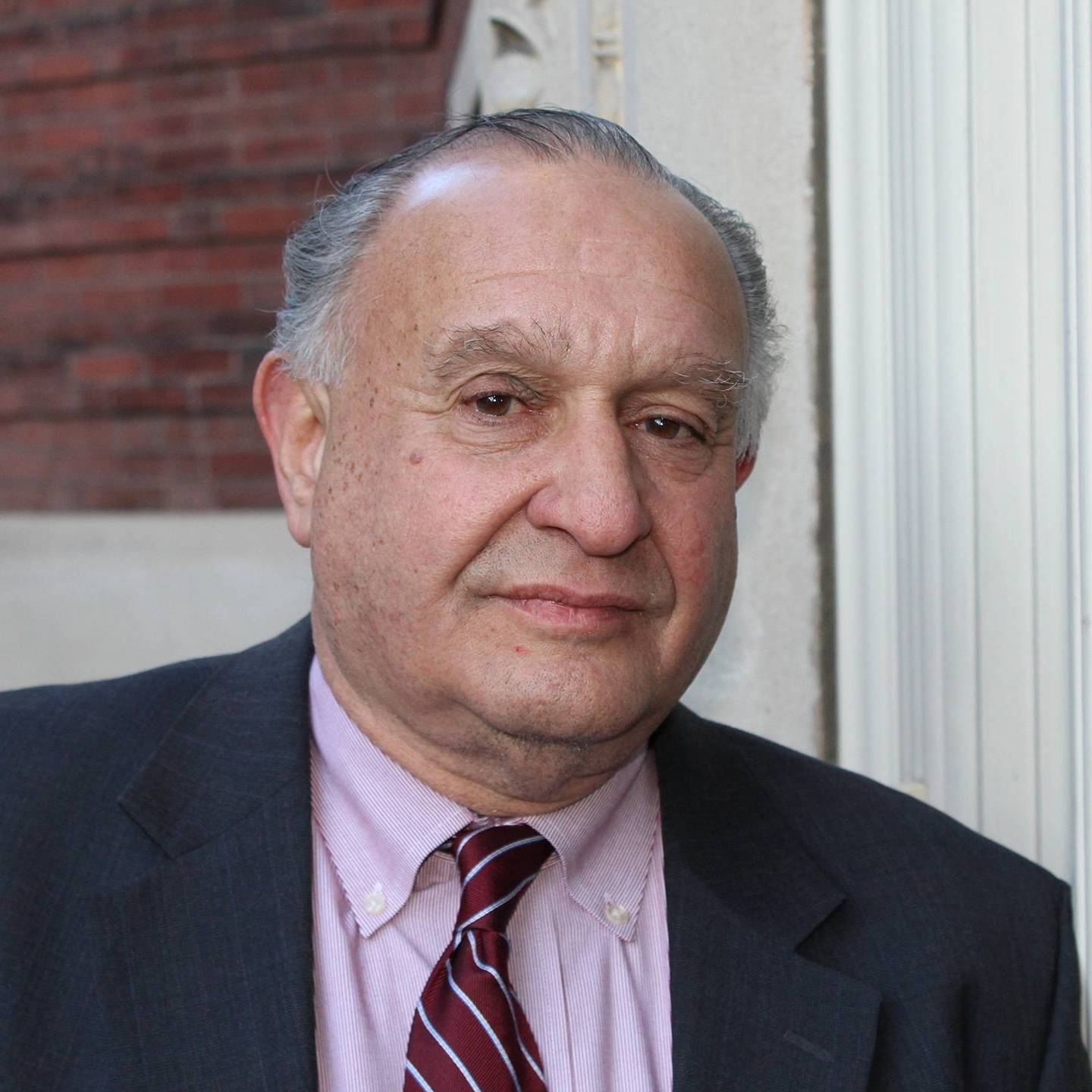Room for Debate is a lively exchange of ideas designed to promote healthy and productive civic dialogue. Questions are posed to a set of panelists with the aim of eliciting thoughtful, probing, and diverse responses. The series invites readers to engage challenging issues that speak to the purpose and well-being of American public life.

With U.S. voter turnout under 60%, and trailing most developed countries, options for increasing voting rates have been an ongoing subject of debate.
Among the suggestions: mandatory voting. Opponents of mandatory voting, though, question whether compulsory voting can even be considered democratic. Furthermore, they argue that forcing uninterested individuals to vote reduces the quality of the outcome by allowing uniformed votes to cancel out the votes of individuals who have carefully researched issues and candidates.
Proponents of mandatory voting argue that compulsory voting should be seen not merely as a right but as a duty, similar to the duty of paying taxes and obeying the law. Moreover, proponents argue that, even with the problem of uniformed individuals, mandatory voting forces politicians to be interested in the will of an entire population rather than just the active fringe elements in the quest for election. Such a focus, they argue, results in politics and politicians that are more moderate and less partisan.

Mandatory voting focuses on boosting turnout to the polls while ignoring the real purpose of voting – selecting the best candidate or best choice on an issue. Mandatory voting can’t possibly ensure that voters who’ve had their arm twisted to show up will take their basic responsibility as a citizen seriously.
Simply increasing the quantity of votes cast does not necessarily increase the quality of our electoral process. It’s a shame whenever an American citizen refuses to participate in elections. But it’d be a far worse shame to force an uninformed, apathetic citizen to vote. Think of what would happen to the rest of us, we would be forced to live with the representatives and policies an artificial influx of uninformed voters foisted upon us.
Political pundits complain about low voter turnout and rightfully so. In an ideal world, every American would be willing and able to cast an informed vote reflecting their sincere opinion of what would be best for their country. I think supporters of mandatory voting would agree with me on that. Of the realistic options available, I prefer to see a 60 percent or 50 percent turnout of enthusiastic voters who are educated on the issues versus 90 percent or 95 percent voter turnout inflated by people who were compelled to vote without knowing or caring what’s at stake. Turnout is important and public officials should find reasonable ways to improve those numbers. But it isn’t the only aspect of our elections that matters. Better turnout should not come at the expense of informed, responsible voting.
Knowledgeable, informed voters pick the best leaders and policies. Mandating voting circumvents the need for people to become informed and make an intelligent, rational decisions about their vote. Compelled voters have no reason to care about selecting the best candidate or consider if a ballot measure is in their community’s best interests. They just need to cast a vote, any vote, so they can get on with their day. If we approached voting with the same attitude as other actions compelled by government, like jury duty or a trip to the DMV, our civic culture would be poorer for it. Voting is too important to be a begrudged obligation.
Other reforms may deliver the benefits touted by mandatory votings supporters without the obvious downside of forcing uninformed voters to make choices they refuse to take seriously. Ranked choice voting would is a great step in encouraging more independent and third-party voters to engage with elections. This option may motivate candidates to reach out beyond their base in the hopes of bringing more voters to the polls offering them a second or third choice. Incentives for voting—such as prizes, tax credits, or parties like the “sausage sizzles” that occur outside Australian polling places—are another potential tool for boosting turnout.
"If we approached voting with the same attitude as other actions compelled by government...our civic culture would be poorer for it. Voting is too important to be a begrudged obligation."
State and local governments already spend plenty on voter engagement initiatives—so why not cut out the middlemen and send that money directly to voters as a tax credit? Of course, any incentives would need to be managed carefully to avoid even the slightest appearance of legal and ethical impropriety. That said, when done right, incentive programs could attract more voters to the polls without resorting to government compulsion.
The real incentive to vote should come from a citizen’s desire to do the right thing to do as an American. Voting is a citizen’s right and it is a responsibility and is the a fundamental aspect of a democratic society. If that isn’t enough for someone to make voting a priority, I would prefer that they don’t weigh in on the decisions their fellow Americans are making. When non-voters realize their responsibility as citizens, get informed on the issues, and show up at the polls, I’ll be the first to welcome them. But dragging them there with mandates and fines? That can only mean worse government for everyone.

Universal civic duty voting—a requirement that every eligible citizen participate in our elections—would be a transformative policy for American democracy. Its adoption would dramatically increase voting participation, create an electorate that was truly representative of American society, and have a number of collateral benefits for our political processes as a whole.
Universal civic duty voting is not a big idea pulled out of thin air. Rather, it is an attempt to learn from abroad, from countries where this policy has been in place for a long time and has consistently produced very high levels of political participation. Some form of mandatory participation in elections is currently in place in 26 democratic countries, with many variations in procedures and enforcement. Countries as diverse as Argentina, Belgium, Greece, Luxembourg, Peru, and Uruguay require their citizens to vote.
Perhaps the most relevant and striking example is Australia, from which the US also imported the idea of the secret ballot. Australia has made voting a requirement for every citizen for nearly 100 years, since 1924. In elections since then, voter turnout has consistently hovered around 90%. The requirement has resulted in highly professional election administration, laws that encourage and facilitate voting, and an energetic effort by government agencies, political parties, and all of civil society to promote the fullest possible registration and voting. The requirement to cast a ballot is enforced with a small fine of around 15 US dollars, imposed on the small number of people who do not vote and do not provide a reason for not doing so. The policy is popular, and no serious efforts to repeal it have been undertaken. In addition, Australia has made election day a celebratory day, complete with ‘democracy sausages’ outside nearly every polling place.
Universal civic duty voting would not require voting for a candidate. In proposals advanced in the United States, a blank ballot, ‘none of the above’, or a statement of religious or philosophical objection would all be acceptable forms of participation. The purpose is not to penalize people; rather it is to create a shared expectation that voting is a duty as well as a right, a statement which 61% of people in a recent poll agreed with.
This is also not an alien notion in the United States. Think about the requirement of jury duty. This is a civic obligation that we all accept because we want the people who dispense justice in trials to be truly reflective of our society—a jury of our peers. The analogy to voting is crystal clear; we want the decisions of our self-government to be fully reflective of the American people as a whole. As is well known, the current voting electorate is still disproportionately comprised of older, whiter, richer, and more educated voters. If universal voting were adopted, participation levels would grow dramatically, and the actual voting electorate would be far more representative of the country’s diverse population. It is not easy to predict a partisan impact of universal civic duty voting; moving us toward a fully inclusive democracy is its strongest argument.
"If universal voting were adopted, participation levels would grow dramatically, and the actual voting electorate would be far more representative of the country’s diverse population."
It is almost a certainty that institutional behavior would change as well. If everyone were required to vote, schools would expand civic education to prepare graduating students to meet their civic obligation. Corporations and other institutional employers would make it easier for their employees to participate. Local election administrators would move toward making voting more convenient and accessible, and religious and nonprofit institutions would encourage their members to participate.
Universal civic duty would also have a salutary effect on the nature of political campaigns. If everyone is going to vote, campaigns and political parties would have to work to appeal to all voters; they could not rely on a strategy of solely mobilizing their base, or worse, on seeking to discourage the voters of their opponents. Lastly, evidence has also shown that when voting is a known civic requirement, voters pay more attention, educate themselves on issues, and participate more in the process.
Universal civic duty voting could be enacted at the federal level. But it is far more likely that it will be adopted first at the state or municipal level, as those levels of government fulfill their roles as ‘laboratories of democracy’. It is welcome and encouraging that a real discussion of this game-changing idea is beginning, and its adoption would be an important step forward for American democracy.

I’d like to begin by sharing a personal experience which profoundly influenced my belief in the importance of mandatory participation in national elections. In May of 1981, while working for a major multinational corporation in Australia, the country was in the midst of its election for Prime Minister.
I was very struck that no matter where I went or with whom I was talking – hiking in a national park, riding in a taxi, chatting with executives on a break in the boardroom – everyone was talking about the election and its importance to the future of the country. Regardless of age, ethnicity, income or class, people were intelligently discussing who they were going to vote for and what their candidate offered the country.
So, I began to ask questions and quickly learned that voting in the national election was mandatory and had been since 1924. If a citizen chose not to vote they could pay a $20 fine or spend a night in jail. What impressed was how much attention citizens were paying and how they were actively evaluating the facts and potential impact of the candidates policies on their lives. In other words, they were very knowledgeable voters.
When I returned to the US I shared my excitement about the positive impact mandatory voting had on the level and quality of citizen engagement by the Australian electorate in every social and professional setting I found myself. Much to my amazement people were immediately and strongly dismissive of the idea expressing the belief that it would be an infringement on the individual right not to vote. It seemed to me that people had lost track of the Constitution calling on us to be responsible for the general welfare of our democracy in order to protect our rights.
Fast forward four decades – 1981 to 2021 – and we find ourselves facing the most significant threat to our democracy since the Civil War. Trust in our electoral system is profoundly broken. Nearly a year after the 2020 election, almost a third of Americans still believe that the election was stolen.
Given this bleak context for rising above political tactics designed to gain and hold power no matter the impact on our country what may seem like radical action is called for. Try a thought experiment with me. Imagine what would happen if we made two structural changes in how citizens vote.
"Trust in our electoral system is profoundly broken. Nearly a year after the 2020 election, almost a third of Americans still believe that the election was stolen."
First, at birth we receive our voter identification cards which remain with us throughout our lives. Thus no matter how many life changes or geographic moves we make our eligibility to vote is automatic. Second, mandatory voting in national elections becomes the law of the land and all of the political machinations to determine who is eligible to vote are eliminated.
These two structural changes would immediately restore the balance between citizens’ responsibilities and rights to preserve our democracy. Equally important they would take a significant step to restoring trust in our system. No wonder there is now substantial interest in the potential of mandatory voting in the US by citizens, pundits, activists and organizers.

The fundamental premise of a republic is that elected officials govern by the consent of the governed, and there can be no doubt that the thoughtful participation in the electoral process by the governed is key to the system’s effective operation.
That being said, making voting compulsory is the wrong approach to raising the level of participation. Raising turnout for the sake of raising turnout misses the other important components of the citizens’ role: being interested and informed. Mandatory voting will certainly make citizens more involved because they are being required to do so. However, that won’t necessarily mean that they will be any more interested and informed. Uninformed voting is no better than not voting at all, and in some cases, it can be worse… much worse.
When the Framers drafted the Constitution, most of them were skeptical of the citizens’ ability to thoughtfully discern the qualifications and capabilities of their elected officials, especially those of the President. That’s why they devised the Electoral College system. They deliberately distanced the voters from the selection process because they feared what would happen if an uninformed electorate was left in charge to make that choice. The Electoral College doesn’t function the way the Framers intended and hasn’t for over 200 years, but that doesn’t diminish the concern expressed by its creators.
To be sure, the American public is far more educated than it was in 1787, and information is much more freely available and accessible now. Setting aside the very real issue that more information doesn’t necessarily equate better information, it could possibly be argued that the Framers’ concern is less relevant now than it was in the 18th Century. Even so, it is the case that the people who don’t participate in the political process skew more heavily toward the less interested and informed. The American National Election Study survey of the American public has been conducted by the Center for Political Studies at the University of Michigan every election since 1948. Every single election, the results of the survey essentially tell the same story: Those who are less informed and politically engaged make up a significant part of the non-voting public.
There are many reasons that a person might have for not voting. We shouldn’t paint with a broad brush and conclude that all non-voters are less informed and involved. But it is the case that a large portion of those who fail to exercise their right to vote do so because they are less aware, less interested, and less informed. What would be the impact of requiring them to vote?
"Mandatory voting will certainly make citizens more involved because they are being required to do so. However, that won’t necessarily mean that they will be any more interested and informed."
The argument calling for making voting mandatory is likely based on the notion that increasing turnout will raise the quality of outcomes. However, given the public opinion data of the last 70 years that simply doesn’t follow. There’s no reason to believe that people who don’t care enough to become informed and involved would feel any more motivated to care and become more informed. Instead, many would likely be resentful and still try to find a low-cost way of carrying out their obligation. That won’t improve the quality of election outcomes.
If we really want to improve political participation in the United States, we should focus on reducing barriers to voting. Many people choose not to vote because it’s inconvenient to do so. With the 2020 election we saw a significant spike in turnout simply because it was made more convenient to vote. Let’s leave aside the argument that mail-in voting somehow leads to an increase in voter fraud. The evidence simply does not support that argument, and we’ve been successfully using mail-in ballots in Utah for years without issue.
Ultimately, the way to improve the quality of election outcomes is not by telling people they have to vote. Instead, we should be working to produce a better-informed electorate. If citizens become better educated about the issues and candidates, as well as about the political process, their interest in the outcome and their propensity to be involved in it will follow.
“Lift Every Voice: The Urgency of Universal Civic Duty Voting”
The Brookings Institution &
The Ash Center for Democratic Governance and Innovation, Harvard Kennedy School
July, 2020
“Should Voting in the U.S. Be Mandatory?”
New York Times
November, 2011
"From Secret Ballot to Democracy Sausage: How Australia Got Compulsory Voting"
Judith Brett,
From secret ballot to democracy sausage
2019
"Election Law Reform in Chile: The Implementation of Automatic Registration and Voluntary
Voting"
Election Law Journal 13, No. 4 , 570-582
2014
"Should and Does Compulsory Voting Reduce Inequality?"
Karel Kouba and Stanislav Mysicka,
SAGE Open 9, No. 1
2019
"Compulsory Voting”
International Institute for Democracy and Electoral Assistance
February 18, 2021